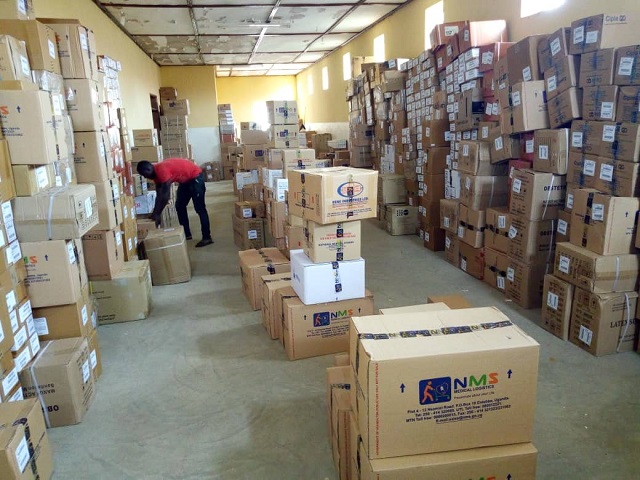
Entebbe, Uganda | THE INDEPENDENT | National Medical Stores (NMS) plans to digitally track all patients who will receive drugs and other essential supplies at public health facilities by 2024.
The plan is part of the agency’s move to digitize the supply chain to enhance transparency in the procurement, delivery and consumption of medical supplies in the country.
The chain will be digitized in three phases, beginning this financial year to end of 2024. This involves digitizing the ordering system for all the public health facilities from Health centre 11 to the national referral hospitals and then connecting NMS to the stores of the respective health facilities.
Before the rollout, all facilities would place orders through email or by hand delivery to NMS regional offices. But the process is slow and tedious.
As a result, Moses Kamabare, the General Manager at NMS, says in the first phase which started last month, all the 268 health centre IVs to national referral hospitals are now making their orders online. The rest of the facilities will start using the system next July. The project is funded by the US government at a cost of 37 billion Shillings.
Kamabare adds that the government has earmarked shillings 5 billion to set up a system to track all patients who visit the facilities and receive drugs. This will be the final phase of the digitization rollout.
He says tracking patients, dubbed the tracking the last mile, will attempt to address the problem of drug theft at the facilities.
He says the agency is required to procure, store and distribute medicines and medical supplies to government health facilities. But it is not responsible for ensuring that patients receive the medicines at no charge.
But with the tracking system, Kamabare says facilities will also identify patients who have already got medicine elsewhere.
Kamabare made the remarks when NMS hosted Richard Todwong, the Secretary General of the National Resistance Movement-NRM on Friday.
Todwong, who toured the NMS warehouse in Entebbe, led a delegation from the NRM Secretariat that included Emmanuel Dombo, the Director for Information, Publicity and Public Relations and legislators from Acholi sub region. The MPs included Gulu West MP Ojara Mapendizi, Nwoya Woman MP Judith Peace Achon and Beatrice Akello Akori, the Agago Woman MP.
He says there have been several complaints about drug theft and the lack of drugs in public health facilities across the country.
Todwong says that he was thereby shocked to learn that the NMS warehouse is full and yet some facilities have been saying they have run out of drugs and supplies such as gloves.
He now wants the public and local leaders to monitor the supply system and demand accountability from the health facilities that claim that they are experiencing stock outs.
Meanwhile, Mapenduzi asked Kamabare to explain whether or not the agency has ways to track and curb the sale of government drugs.
Kamabare however says that the best way to curb drug thefts and also improve transparency is by tracking the consumption of the drugs.
Meanwhile, Akor and Akello say there will mobilise communities to report cases of drug theft and also urge the public to embrace vaccination.
****
URN
 The Independent Uganda: You get the Truth we Pay the Price
The Independent Uganda: You get the Truth we Pay the Price





